Hideaki Ogawa
-
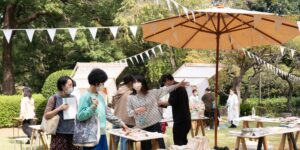
Circular Creativity
Matsudo International Science Art Festival 2022
Das Matsudo International Science Art Festival ist eine jährliche Veranstaltung in der wunderschönen Stadt Matsudo in Japan. 2022 war das Motto des Festivals „Circular Creativity“: im Mittelpunkt die Frage, wie wir alle auf unserem Planeten respektvoll mit der Natur und Menschen unterschiedlicher Herkunft zusammenleben können.
-
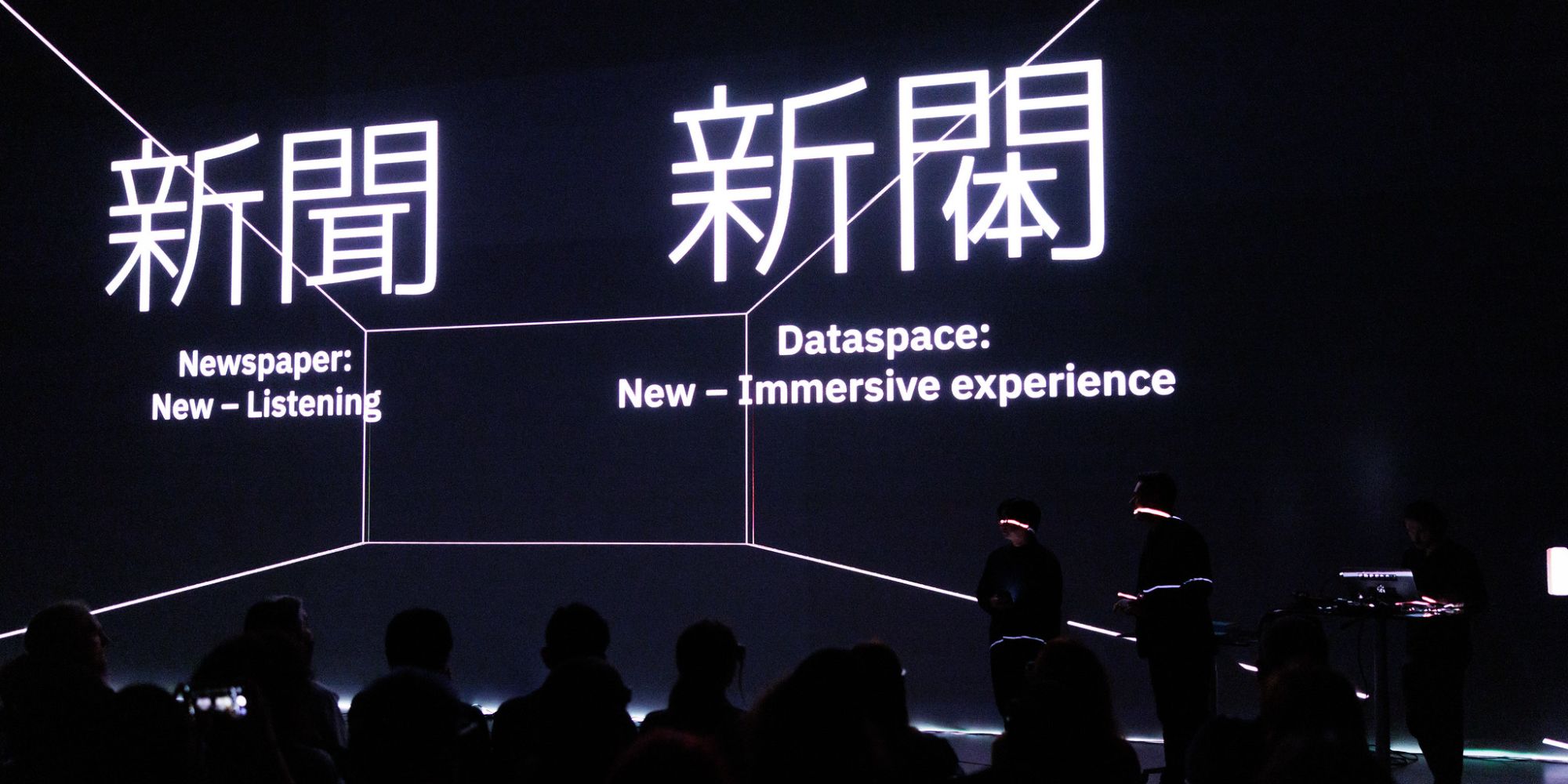
Artistic Journalism 2022
Zukunftskompetenzen als Online-Vorlesung
Ars Electronica Futurelab und Keio University SFC haben 2022 gemeinsam eine Online-Vorlesung mit dem Titel Artistic Journalism als „Literacy for the futures“ eingerichtet. Der Artistic Director des Futurelab, Hideaki Ogawa, wurde eingeladen, die experimentelle Kursreihe von der Ars Electronica in Linz aus zu unterrichten.
-
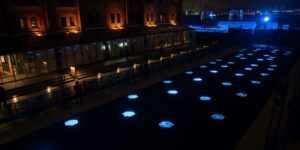
Stream of Hope
Großformatige Fluxels-Performance in Japan
Mit den Fluxels, einem skalierbaren Schwarm von Bodenrobotern, hat das Ars Electronica Futurelab eine neue Form des visuellen Ausdrucks erfunden. Stream of Hope in Osaka und Yokohama stellte die Vielseitigkeit der Roboter bei Großveranstaltungen unter Beweis.
-
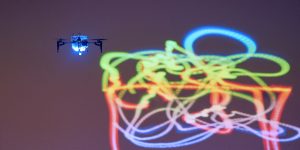
Space Ink
Dreidimensional zeichnen mit Drohnen
Was wäre, wenn wir in jedem Raum mit einem Stift zeichnen könnten? Diese Frage steht im Mittelpunkt von Space Ink: Hier werden Tablets und Drohnen zusammengebracht, um mit Licht und Farbe großflächige Werke im dreidimensionalen Raum zu erschaffen.
-
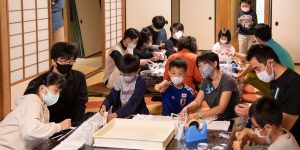
OPEN CITY
Matsudo International Science Art Festival 2021
2021 stand das International Science Art Festival in Matsudo unter dem Motto „OPEN CITY – Inspirational City“. Das Festival zielte darauf ab, ein Ökosystem zu schaffen, in dem Menschen sich verbinden und gegenseitig zu neuen Herausforderungen inspirieren können.
-

AI Ink
KI-Komposition mit Mensch und Rauschen
„Noise“ – übersetzt Lärm, Rauschen oder Geräusche – ist ein wichtiges Element in der Kreativität künstlicher Intelligenz. Um die Beziehung zwischen „Rauschen” und der „Seele“ einer Maschine zu verstehen, verwendeten wir in AI Ink beim Komponieren von Musik mit künstlicher Intelligenz Temperatur und menschliche Interaktion als Geräusche. Schließlich ist die Temperatur auch im menschlichen Körper…
-
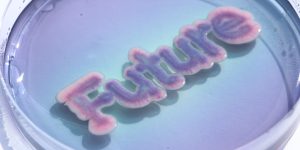
Bio Ink
Kann Tinte lebendig sein?
In Bio Ink vereinte das Futurelab Biotechnologie und digitale Stifttablett-Technologie, um lebendige Tinte zu schaffen, die sich unabhängig von menschlichen Einflüssen vermehren kann. Mit dieser Forschung erkundete das Team die gemeinsame Schöpfung mit anderen Organismen und der Natur.
-
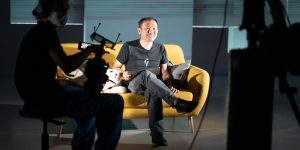
Artistic Journalism 2021
Online-Vorlesung zu sozialem Dialog
2021 hielt Hideaki Ogawa, Artistic Director des Ars Electronica Futurelab, eine Online-Vorlesung an der Keio University SFC (Shonan Fujisawa Campus) zu “Artistic Journalism”, also künstlerischem Journalismus: dem Akt, sozialen Dialog zu schaffen – durch künstlerischen Ausdruck, Forschung, Exploration und Handeln.
-
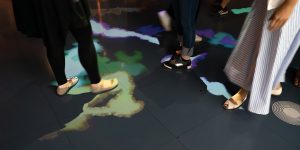
Hybrid Space
Interaktive Telepräsenz im Museum
Hybrid Space war eine Installation des Ars Electronica Futurelab, die im Rahmen des 25-jährigen Jubiläums des Labors im Jahr 2021 präsentiert wurde. Sie schuf einen interaktiven Raum im Ars Electronica Center, in dem sich Museums- und Online-Besucher*innen treffen und miteinander interagieren konnten.
-
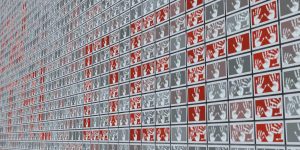
Hands for the Future
Soziale Fragen als partizipative Installation
Hands for the Future ist eine partizipative Medieninstallation im Ars Electronica Center. Sie dient als Aufruf zum Handeln für die verschiedenen tiefgreifenden Probleme, die die Menschheit dringend adressieren muss.
-
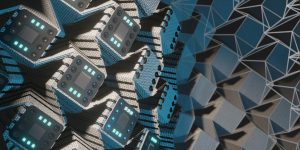
ORI*BOTICS
Kunst und Forschung zu Origami-Robotik
ORI*BOTICS, the art and science of robotic origami, ist ein fortlaufendes Forschungsprojekt, das die Verbindung von Origami, Technologie und Natur untersucht. Es baut auf neuartigen Methoden des Designs und der Herstellung von starkem, flexiblem und höchst unregelmäßigem Origami aus Textilien und 3D-Druck auf, insbesondere Fold Printing und Fold Mapping.
